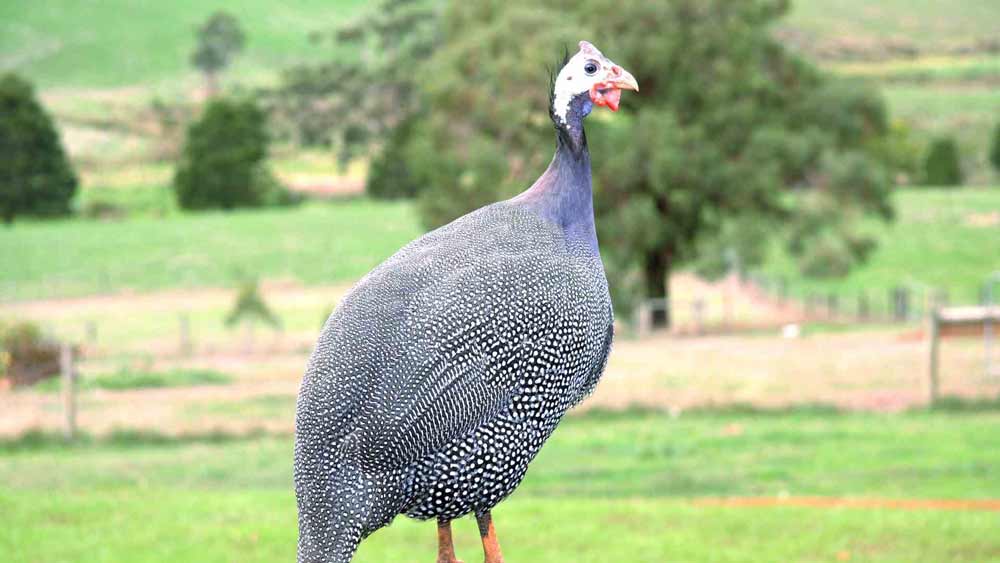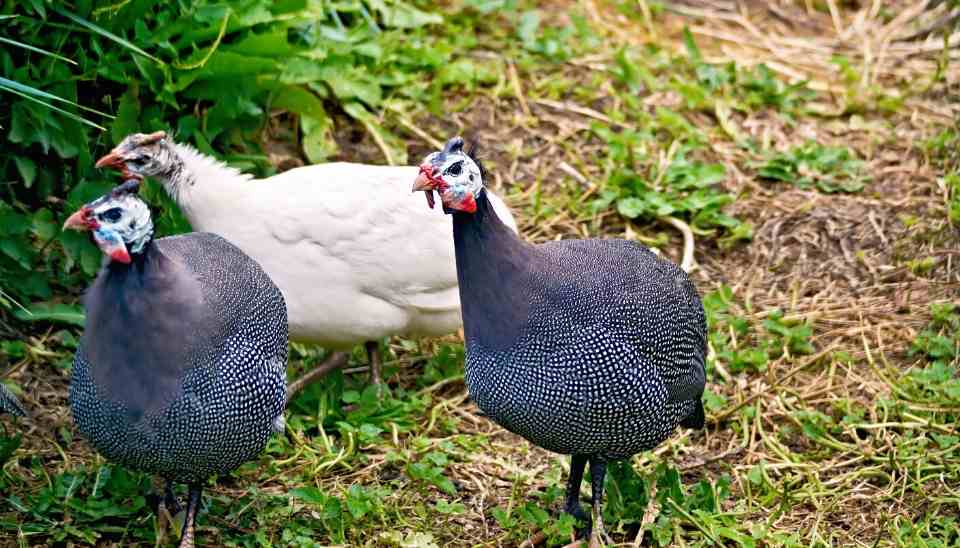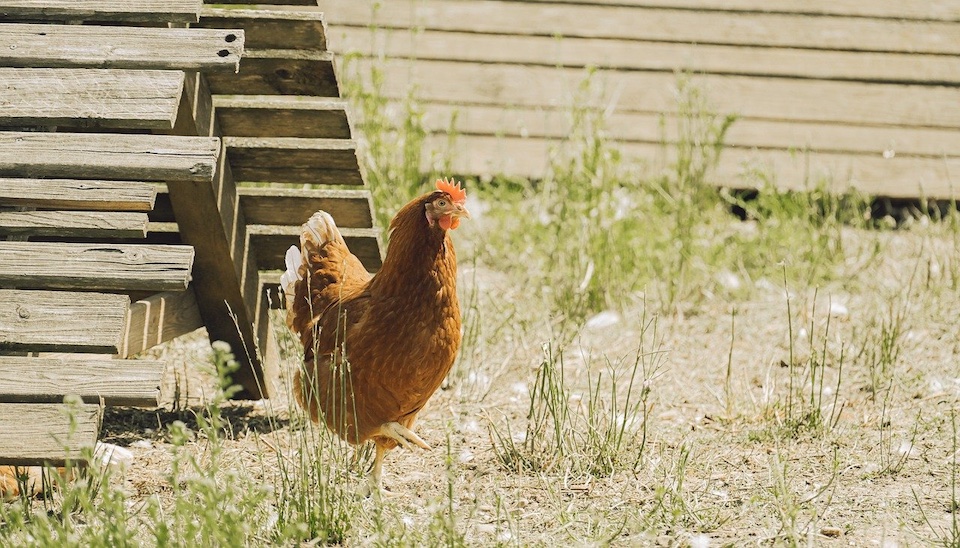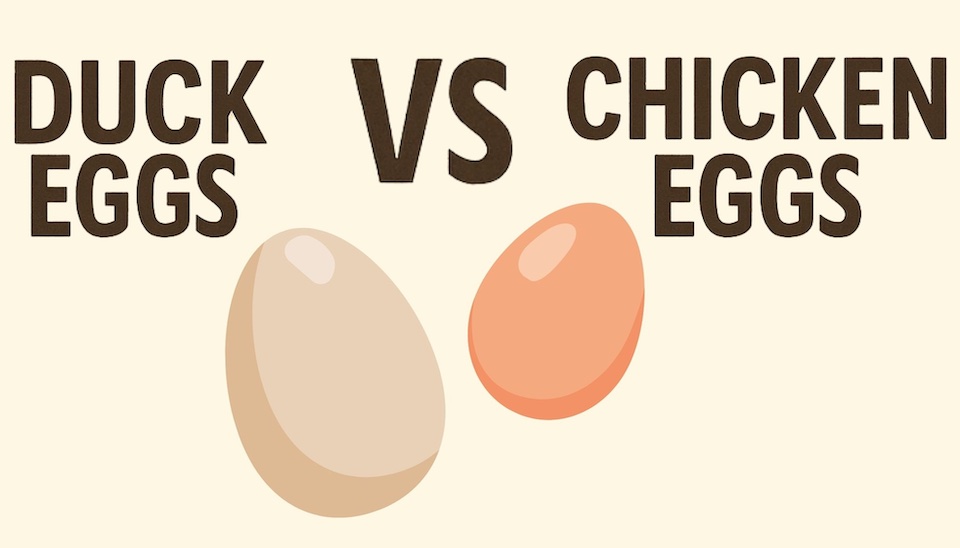Why Guinea Fowl are the best pest control
Why Guinea fowl are the best pest control
If you have the room for Guinea fowl to roam around the chicken coop freely it's a great way of pest control. Guinea fowl are watchdogs around the chicken coop and run. Not only are they ever vigilant, watching out for predators, but they are a low maintenance bird. Read more to find out Why Guinea Fowl are the best pest control.
What is a Guineafowl?
Guineafowl or also known as pet speckled hen are related to turkey, pheasants and other game fowl. The guineafowl originates in Africa. Still to this day, Africa is home to the largest population of Guinea fowl.
They are both a meat and also egg bird.
There are several distinct types of the Guinea fowl. White breasted, Black, Helmeted and crested. The most common found in backyard farms is the helmeted variety.
The largest of guineas is the Vulturine which have a slightly more mellow personality and tend not only to be large in size but more tame.
Like many species found in Africa, droughts, poaching, habitat loss and also climate change are threatening the native guinea population. The plumed guinea is found mainly in central Africa and almost nothing is known about it. The white breasted Guinea is mainly located in Western Africa. Due to human caused habitat loss, this type of guinea is now classed as a vulnerable bird by the International Unions for Conservation of Nature.
Think about the neighbours
If you live in a residential neighbourhood or a rural property with neighbours close by, Guinea fowl are not the best pets to have. They can be noisy and cause severe upset with your neighbours. Guinea fowl are best for the farm and rural property where they can roam freely without disturbing the neighbours.
It is always a good idea to check your local council by-laws and regulations before buying Guinea fowl.
Guinea fowl protect your hens
If you want to house Guinea Fowl with your hens, they must all be raised together from a young age. If you simply put adult Guinea Fowl in with your chooks, fighting will occur, and your chooks will lose. However, if your farm has room for the Guinea Fowl to roam and live outside the coop and run, they will help protect the coop from predators large and small. Guinea fowl are noisy when they spot a predator such as a wild bird, wild dog, fox or snake. Their sheer noise is generally sufficient to let the predator know they mean business. So if you have hens which free range on the farm or rural backyard, Guinea fowl will alert your chooks to any danger.
These birds will happily roam in the day free grazing and happily roost in trees at night. It is better for them however, to have a place to roost at night safe from predators. If you already have an established chicken coop, then you should have a sperate coop for your Guinea fowl. Initially, keep the coop and run enclosed for a few weeks for them to get used to their new home, after that they will know where to come home to at night.
Guinea fowl and your Gardens
These birds love to roam freely. They love to eat insects and happily roam the garden looking for tasty bugs to enjoy. If you have a seedling garden, it is best to cover this with fruit tree netting or anti-bird netting to keep them out. Established gardens will be fine for your Guineas to roam and forage for insects. One huge benefit of letting Guinea fowl free in your established garden is they will feast on the bugs which harm your plants. Win, Win.
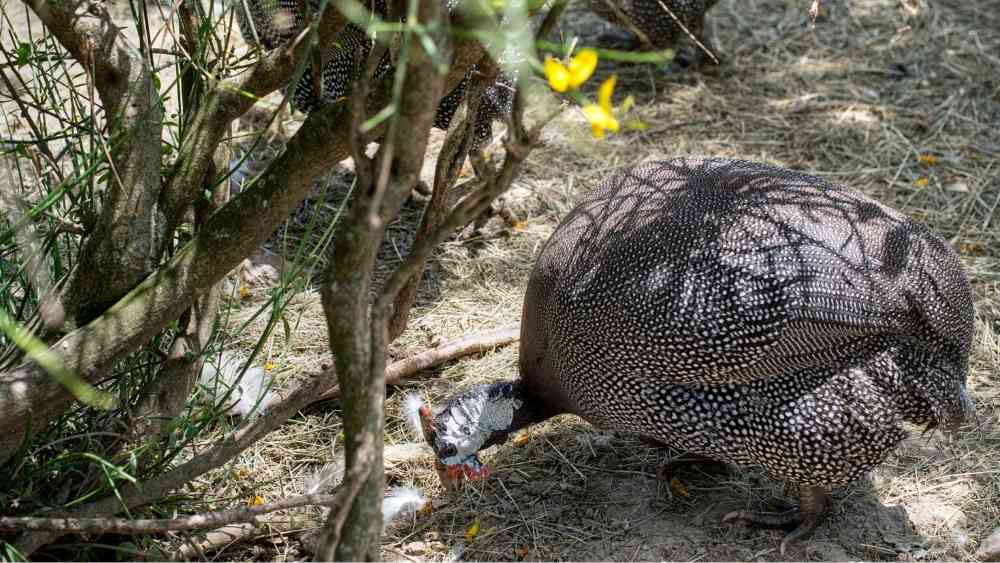
What insects do Guinea fowl eat?
The reason Why Guinea Fowl are the best pest control is that they are not fussy eaters. They will happily indulge in a grasshopper, ants or worms. Even spiders and ticks are on the menu. So if you have other animals outside your chickens, such as a dog or cat on the farm, Guinea fowl are a great way to help prevent tick bites.
Insects Guinea fowl love:
- Mosquitoes
- Beetles
- Ticks
- Fleas
- Caterpillars
- Worms
- Slugs
- Locusts & Grasshoppers
- Spiders
- Ants
- White ants
- Termites
Ticks love to live in moist garden areas and areas with loose ground covers such as leaves, mulch and weeds. With a Guinea fowl roaming, they will be cut back in numbers at no time at all. Ants and creepy crawlies will also fall victim to the taste buds of the Guinea fowl.
For those who love gardening, grasshoppers can cause serious damage to your plants very quickly. Guinea fowl will keep the numbers down and become your new best friend in the fight against locusts and grasshoppers.
Guinea fowl eggs
If you have a flock of Guinea fowl, the eggs are a great source of nutrition. However, unlike hens, guineas usually only lay a couple of times throughout the year. And they are small eggs. Two Guinea eggs would equal a large chook egg. The taste of a Guinea egg is delicate compared to a chicken egg. But if you were given a Guinea egg with a blindfold on you likely would not taste the subtle difference to a chicken egg.
Guineas start laying eggs around 20 weeks of age. Unlike chickens, Guineas are seasonal layers. They commence laying around Spring with a nest of 25 - 30 eggs. Then they take a little break and start laying again. In total they lay eggs four times each year, each time having a small pause before laying again. They do not lay in winter if your climate is too cold. Unlike chickens, they are guided by seasons and the climate. They do not like extremes of heat or cold when laying.
Do Guineas need a male to lay an egg?
No. Just the same as chickens, Guineas can lay eggs without the need for a male bird.
Where to find the eggs
If you're an experienced backyard chicken keeper, think of a brooding hen. Guinea Fowl lay their eggs in private little nests on the ground. When they are in season, they shall lay one egg daily then go back to their coop to roost at night. If the nest is left undisturbed, a Guinea may show signs of becoming broody. If this occurs, she will not return to the coop, but instead, she will stay on the nest. So look around the yard, they love small depressions in a private place with plenty of cover. So under shrubs, in long grasses or brush is a great place to start looking. The nests are very challenging to find, especially if you have a large yard. So get the kids involved in your treasure hunt for the Guinea nest. Also, unlike hens, Guineas will seldom use a nesting box.
Guineas are known to share the nest, which is why you may find two eggs in one day.
Helpful Hints:
- If you have a male Guinea, he will often guard the nest during the day before he goes home to roost.
- Try looking in long grasses, under sheds or their coop or anywhere else they can fit for privacy to lay.
- Guineas will move the nest to a new location if you are spotted taking the eggs.
What's the best ratio of males to female in the flock?
While Guineas are happy to mate one on one, in a flock, one male cock bird can fertilise up to 5 hens. You should not go more than that ratio as it can affect egg fertility.
Do Guinea fowl eat snakes?
Thanks to their noise, Guineas are an excellent way to protect the yard from uninvited snakes. In a flock, Guinea Fowl will sound out loudly to alert you of the presence of a snake. If the snake is small, a flock may encircle the snake and may even kill it. Generally, they will not eat a snake. Most snakes in Australia retreat with the sound of noise, and so Guineas in that respect are a excellent snake deterrent.
The negatives to keeping Guinea fowl
So far everything sounds pretty cool in getting a flock of Guinea fowl for your yard. But before racing to buy some, you need to know the negatives which you may face when owing Guineas.
- OMG, they are so loud. Guineas are like an outdoor alarm system. They love to Don['t alert you to almost anything that startles them. Someone coming up the driveway, a fox, a visitor to your house, even a car that may drive past the property. This is fine if you are out during the day, but if you are a shift worker, it will take some getting used to the noise. So to be clear, when we say alarm we mean it, think alarm siren in your bedroom.
- Guinea fowls love to roam. They enjoy a constant change in scenery, including roosting in different locations. To help stop them eating your neighbours garden or getting collected by the school bus at 3.30 pm you may need to install a high fence. Remember though this will be a deterrent but not a solution. If your guineas are overly curious, they will jump/fly over the fence.
- Guinea fowl are not exactly the smartest of birds. They see reflective surfaces as other birds and are likely to peck at glossy cars, glass doors or other reflective, shiny surfaces. So probably best not to let them too close to the new family car.
- Guinea fowl can just up and leave you. Even on a rural property where your neighbour is acres away. It is not uncommon for Guineas to just pack up and move into the neighbours yard with no intention to ever return.
- They are known to abandon their hatchlings, so they are not the worlds most devoted mums.
Lastly, they are very, very fertile. They mate in pairs so unless you want a new flock in no time at all you may consider simply getting a couple of guineas the same sex, so they don't breed.
Guinea Health
Guinea fowl are very low maintenance compared to poultry. Guineas seldom get sick. Also, they rarely succumb to the flock diseases that hens do. So not only do they help keep the ticks, mites and other insects at bay but they don't cost you the earth in vet fees. Win, Win.
Overall, Guinea fowl can be very entertaining. You can make an afternoon just watching how ridiculous they can be as they forage around. And, if you can live the noise, keep the neighbours happy and protect your car paint, we think they are a great addition to your backyard flock in a rural area.
